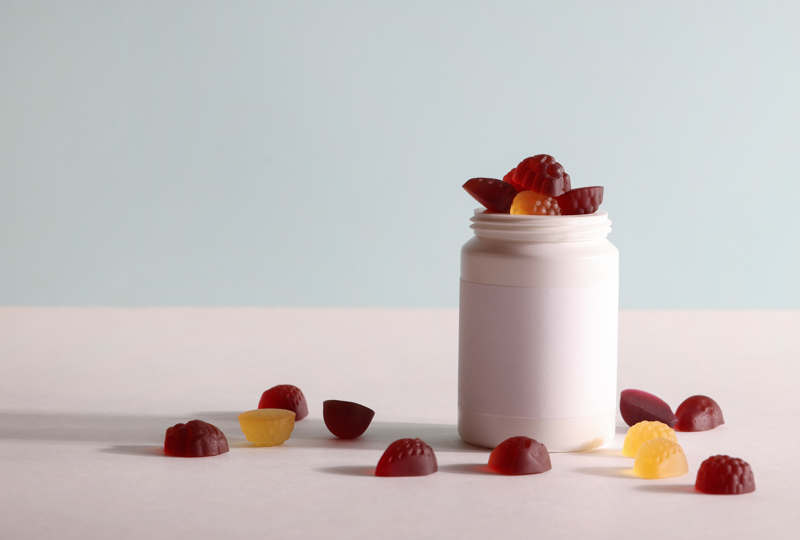Some cannabis products look like candy, but they are dangerous for young children.
The Tennessee Poison Center wants parents to understand that delta-8 tetrahydrocannabinol products (also known as delta-8 THC) are toxic to children.
Some children have ended up in the emergency room, or hospitalized, after eating these products, which are intended only for adults.
Make sure you keep all cannabis products stored out of children’s reach.
“Parents need to keep them up and locked away,” said Dr. Rebecca Bruccoleri, medical director of the poison center. When it comes to delta-8 TCH edibles, “they need to treat these with a lot of care and realize that children are going to be attracted to them because they look like candy,” such as gummies. Most THC-related calls to the poison center about children have involved products that look like candy, Bruccoleri said.
In Tennessee, during the year from March 1, 2024 through Feb. 28, 2025, there were 98 poisoning cases involving inhalation or ingestion of delta-8 products, Bruccoleri said. Of those cases, 42 happened to children age 5 or younger. Among those young children, 16 had to be admitted to a hospital. “Children have been pretty ill from them, requiring intensive care unit admissions,” Bruccoleri said.
There has been at least one child who died due to exposure to delta-8, according to a report made to the Food and Drug Administration’s Adverse Event Reporting System.
What is delta-8 THC?
Delta-8 THC is a cannabinoid. It is an active compound found in the cannabis plant. The cannabis plant is also called hemp or marijuana, depending on its composition of cannabinoids. The two cannabinoids people are most familiar with are cannabidiol, also called CBD, and delta-9 THC. Delta-9 THC is the main psychoactive compound in cannabis that causes a “high.”
Delta-8 THC is a chemical analog to delta-9 THC. That means it is chemically similar to delta-9 THC. However, delta-8 THC is produced after manufacturers synthesize it from CBD. They do that because it’s only present in small amounts in hemp. Delta-8 may have potentially harmful contaminants from the chemicals used in the manufacturing process.
The bottom line, Bruccoleri emphasized, is that all cannabis products — whether CBD, delta-9 THC or delta-8 THC — should be kept away from children.
Why this is hazardous to children
Bruccoleri explained two major concerns about children being poisoned by these products. “One is that kids can be so sleepy that we are worried they cannot adequately breathe, or that they’ll stop breathing,” she said.
“The other is that they will have really low blood pressure and will need support from the [intensive care unit].”
Symptoms of delta-8 THC poisoning in children, and what to do
The poison center’s hotline number is 1-800-222-1222. This is usually the call you should make first, if your child is not showing any symptoms, Bruccoleri said.
However, if someone of any age is in acute distress, call 911 right away for immediate help. Tell them a poisoning may have happened.
Signs that someone needs that 911 emergency attention include if they are unconscious and you can’t wake them up; if they are having a seizure; if they are having trouble breathing normally; or if they are turning blue — or other signs of serious illness. The emergency medical personnel can call the Poison Center after they make sure medical care is coming to you.
Talking to your children about delta-8 THC
Having a conversation about cannabis in general with your kids could help keep them safe.
With the youngest children, your conversation can be about how not all items, even ones that look tasty, are safe to consume. “One thing we teach in the poison center world to children under 5 is that they should always ask their parents before they eat something,” Bruccoleri said.
Talking to preteens and teens is important too. “If a teenager comes across one of these products, they also need to know to keep it away from small children,” Bruccoleri explained, noting that delta-8 THC products are illegal to purchase for people under 21 years of age in the state of Tennessee. “And I’m not saying that teenagers should be using this stuff.”

Save this number!
The Tennessee Poison Center toll-free hotline is 1-800-222-1222.
The 24/7 hotline puts you in touch with a poison specialist. The center provides free, confidential poison information and treatment advice to the public and health care professionals.
The Tennessee Poison Center is the state’s only emergency poison information resource center. It is a program of Vanderbilt University Medical Center.




